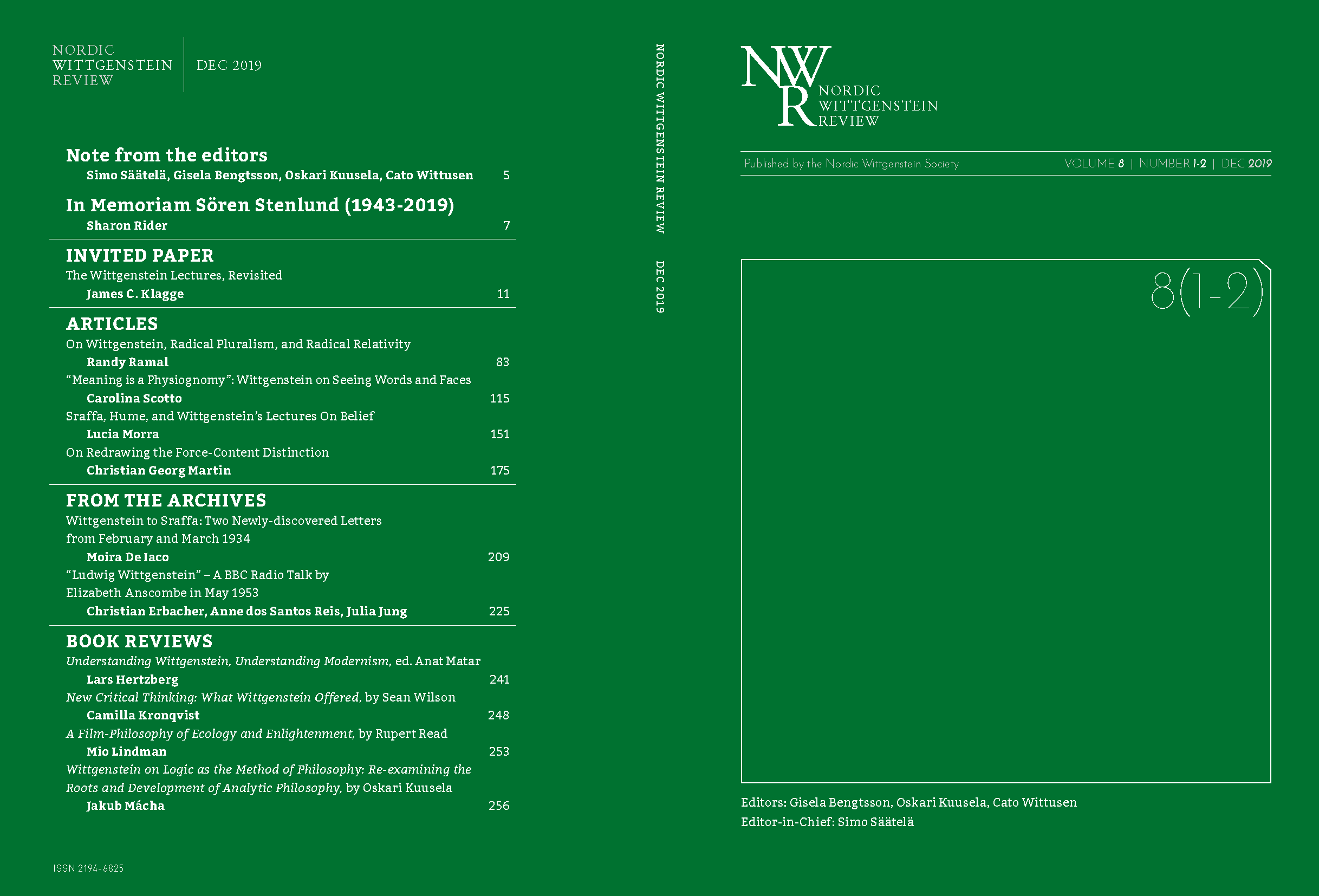On Wittgenstein, Radical Pluralism, and Radical Relativity
DOI:
https://doi.org/10.15845/nwr.v8i1.3461Keywords:
Radical Pluralism, Radical Relativity, D Z Phillips, Hilary Putnam, Conceptual Relativity, Conceptual PluralismAbstract
In this paper, I introduce the idea of ‘radical relativity’ to elucidate an undervalued justificatory context for Wittgenstein’s affirmation of radical pluralism. I accept D.Z. Phillips’s definition of radical pluralism as the view that certain radical differences between people’s ordinary practices prevent the latter from being reduced to a necessary set of common interests, meanings, or truths. I argue that radical relativity provides this form of pluralism with the logical justification it requires in that it accounts for how pluralism became radical. More specifically, I argue that the contingent, non-causal, and yet non-arbitrary relation between ordinary concepts and the pluralistic world through which they emerge explains the reality of radical pluralism. Radical relativity is suggested in Wittgenstein’s three notions of ‘concept formation’, ‘agreement in reaction’, and ‘world pictures’, I argue, without endorsing traditional forms of relativism. Finally, I show that although D.Z. Phillips and Hilary Putnam promote notions of pluralism indebted to Wittgenstein, neither philosopher utilizes the radical relativity suggested in his work to justify his respective version of pluralism or Wittgenstein’s version of radical pluralism.
Downloads
Published
Issue
Section
License
Copyright (c) 2019 Randy Ramal

This work is licensed under a Creative Commons Attribution 4.0 International License.
NWR uses the Creative Commons license CC-BY.
Vol. 1-3 used CC-BY-NC-SA. The collected works copyright ownership for Vol. 1-2 were shared by Nordic Wittgenstein Society and ontos Verlag/De Gruyter.









